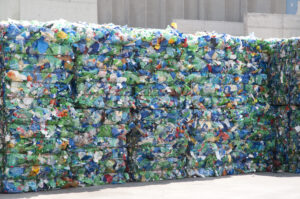Like many businesses across the UK, recycling and car scrapping enterprises faced lockdown during the Covid-19 crisis. It was a huge and immediate shock to an industry that has been thriving in recent years.
Not only do scrap businesses rely on bringing in new stock, there is a large supply chain that also depends on the industry. In the past, these companies have relied on a regular supply of old cars that have failed their MOTs or vehicles from scrappage schemes run by the big car manufacturers and dealers.
As with other sectors such as hospitality and the airline industry, recycling and scrap car businesses have had to tighten their belts and do their best during this difficult time.
Changes Recycling and Scrap Car Businesses Have Had to Make
Unfortunately, the car scrappage and recycling industry is not one where too many employees could work from home. Companies had to introduce safety measures such as making scrap vehicles collection only while completing paperwork and payments online.
Some went further, only accepting scrap from trade or business customers rather than private vehicle owners. Most operated an appointment only system for visitors to their premises. The number of online scrappage comparison sites that help car owners get a good deal suffered from the knock-on effect of restrictions within the industry.
Car Scrappage Schemes
Many car companies like Toyota and Ford offer scrappage schemes where motorists can get money back on their old cars to put towards a more efficient and modern one. As with many sectors during the lockdown, however, car sales have fallen dramatically as many potential customers play a wait and see approach.
How long this might go on for will depend on the economic fallout of the pandemic but it’s difficult to see the industry recovering quickly over the next few years. There is some talk from the CBI of the Government reintroducing their original scheme which was popular following the last recession to provide a boost for the market.
Needless to say, car recycling and scrappage businesses benefit hugely from this sort of support but there will be competition for financial input from the government which may not make it easy.
The Impact of the MOT Extension
In March, the Government allowed a 6-month extension to MOTs in the UK. This applied to vehicles that were due to have their MOT renewal between 30th March and 31st July.
Bearing in mind that cars often come to recycling and scrappage yards after they have failed an MOT for the last time, this temporary regulation has also had an impact on the industry.
The other side of this, and something which is concerning the automotive sector particularly, is that there may be a significant number of cars on the road today that shouldn’t be. There is a now a huge backlog building up of older cars that require an MOT which could effectively inject some much-needed impetus into the scrappage and recycling market over the next four or five months.
Low Scrap Metal Prices During Lockdown
Much of the income that car recycling firms make is from processing and selling the metal components in vehicles. The price of scrap metal, however, has fallen quite dramatically during the pandemic and these are only just starting to show signs of recovery.
Fewer cars being delivered to scrap yards and lower recycling rewards have meant that many businesses are currently operating well below their bottom lines. Staff have been put on furlough and, like everyone else, companies are looking to weather the storm and hopefully come out on the other side once restrictions are lifted.
